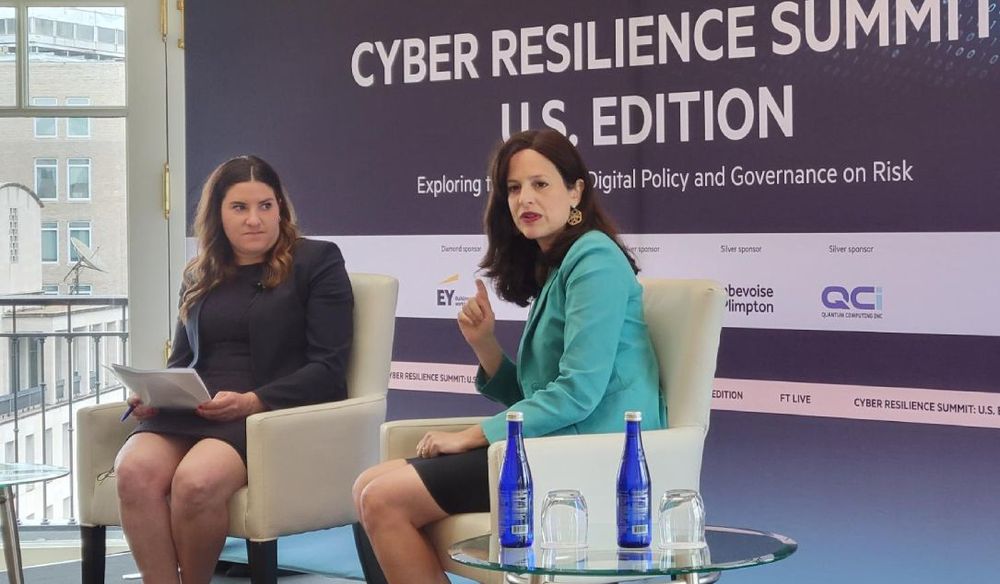Neuberger: Ukraine experiencing a ‘surge’ in cyberattacks as it executes counteroffensive
Moscow has ramped up its digital assault on Ukraine as a result of Kyiv’s long-awaited counteroffensive to retake Russian-occupied territory, according to a senior White House official.
“We know Ukraine is currently experiencing a significant surge in cyberattacks in parallel to the kinetic aspects,” White House Deputy National Security Adviser Anne Neuberger said Thursday at the FT Cyber Resilience Summit in Washington.
Recorded Future, the parent company of The Record, is a sponsor for the event.
Neubger did not specify the scale of Russia’s operations or if a particular sector of Ukraine’s infrastructure had come under increased attack.
The U.S. public and private sectors have provided Ukraine with digital assistance in a variety of ways since the start of the conflict to shore up the country’s networks and systems.
The former Soviet satellite state had long been a testbed for Russia’s hackers before Moscow launched its unprovoked invasion last year, most notably in 2015 when Ukraine’s electric grid was knocked offline and in 2017 when the NotPetya wiper malware spread across the globe.
But aside from an attack targeting American commercial satellite internet company Viasat, there have been few significant cyber incidents since Russia invaded 16 months ago.
Neuberger said that “in many ways Ukraine is a really great use case for cybersecurity” and highlighted some of the major steps the country took to “double down” after past instructions, including disconnecting from Russia’s energy grid and teaming up with international partners and the private sector to boost its defenses and move its data to the cloud.
Martin Matishak
is the senior cybersecurity reporter for The Record. Prior to joining Recorded Future News in 2021, he spent more than five years at Politico, where he covered digital and national security developments across Capitol Hill, the Pentagon and the U.S. intelligence community. He previously was a reporter at The Hill, National Journal Group and Inside Washington Publishers.



